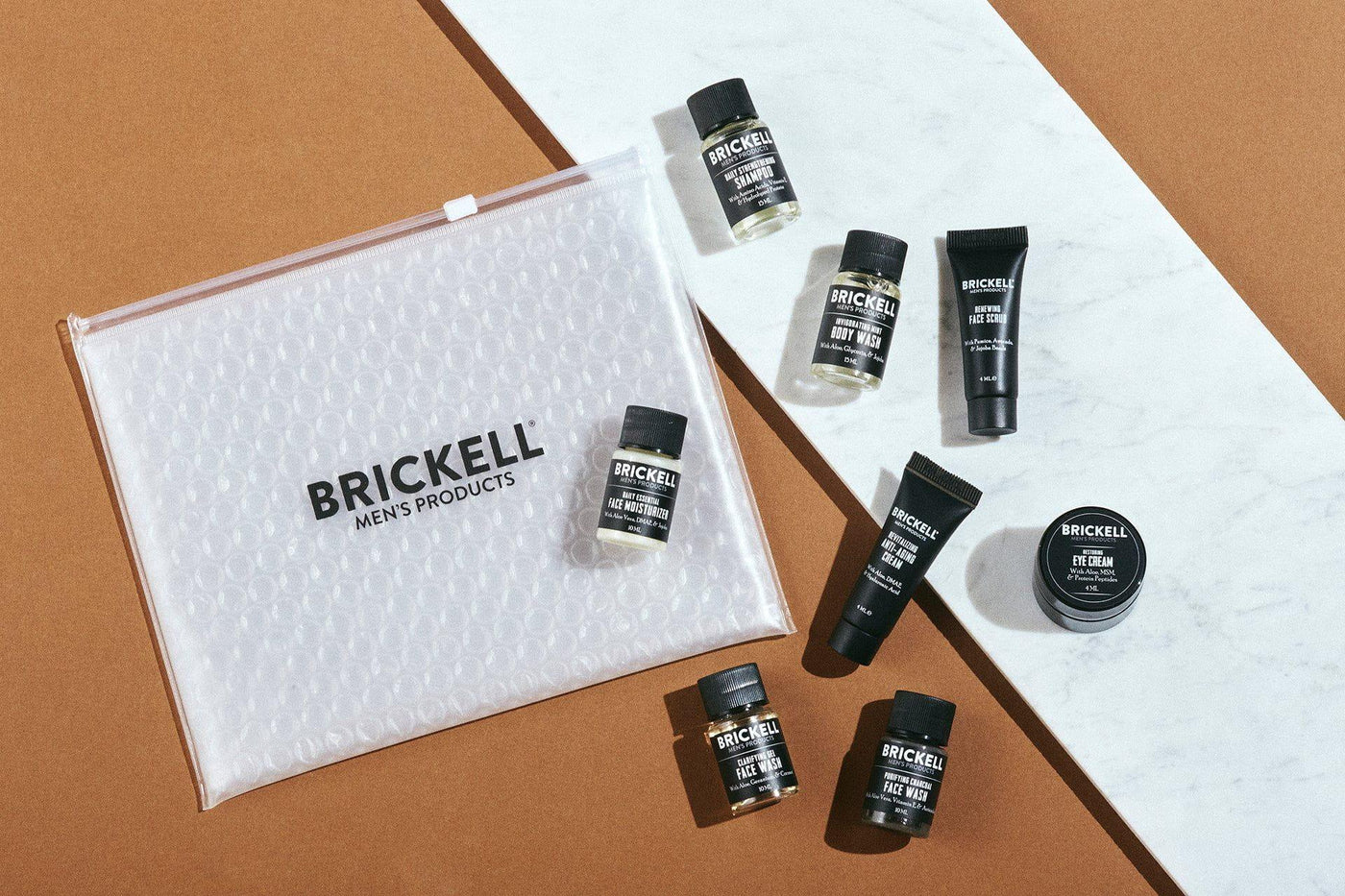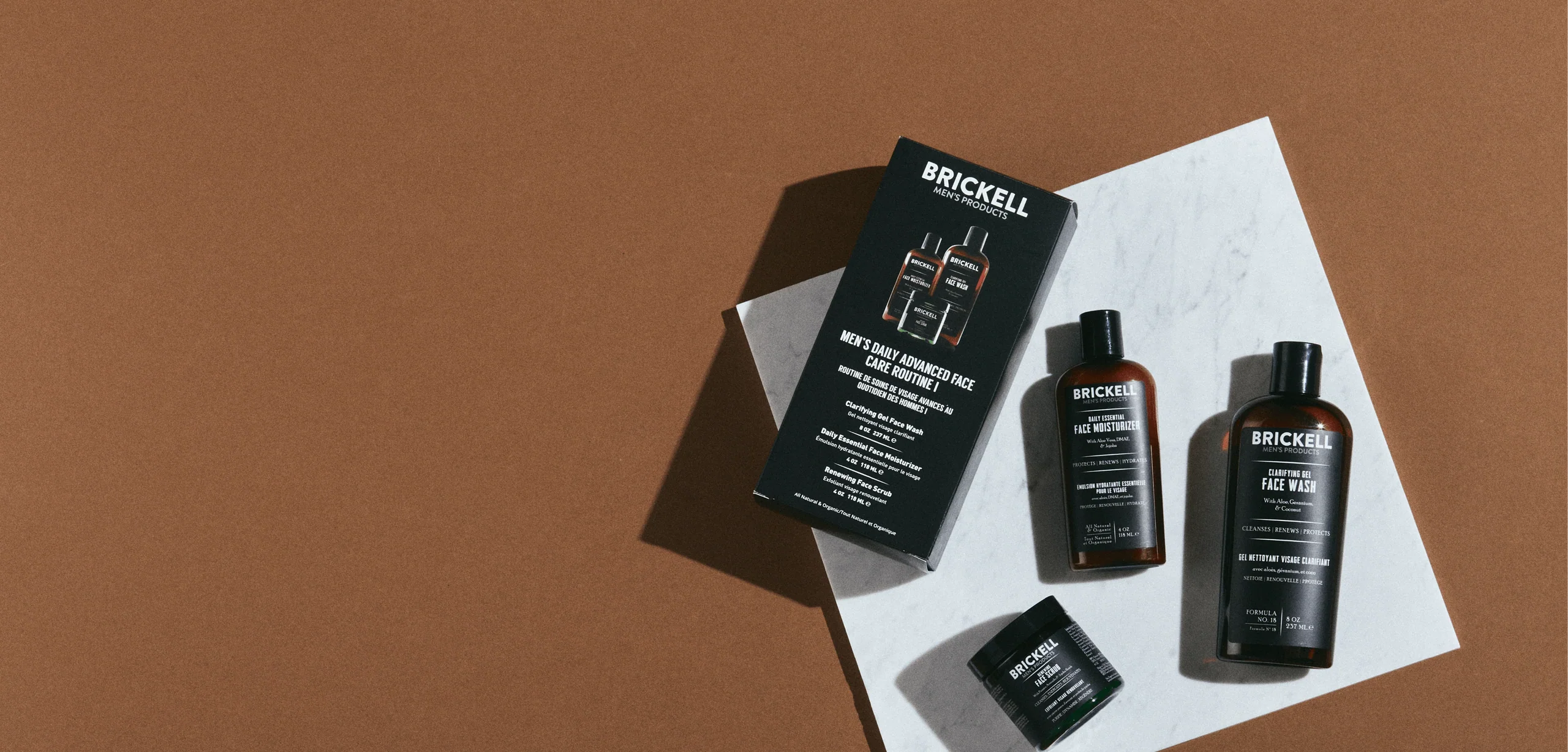The Grooming Manual
Why Does My Beard Itch?

Your beard looks handsome and masculine, but why has it been itching so much lately? Is dry skin causing your itchy beard? It could be a variety of things, from dandruff to skin irritation to a skin infection beneath your facial hair. To prevent itch, flakes, and common irritation, follow these tips.
What Causes Beard Itch?
If it seems that the question “Why does my beard itch?” is popping up regularly, it’s probably a sign that something in your routine needs to change. The most common cause of beard itch is dry or irritated skin. However, there may be other contributing factors.
Dry or Irritated Skin
Your beard hair naturally repels water and attracts oil, including your body’s natural oil, called sebum. The skin on your face releases sebum into your beard hair’s follicles, and any brushing or moving of the hair helps distribute the oil. However, the hair in your beard can sometimes hog all your natural oils, leaving the skin beneath it dry and more prone to irritation. All that dry skin can also lead to beard dandruff and an irritating itchy beard.
Ingrown Hairs
Sometimes your beard hairs can curl around and grow back into your skin or its follicle, causing painful red bumps and itchiness. While annoying, ingrown hairs are very common and can easily be treated with gentle exfoliation and good hygiene. If left untreated, they can cause constant irritation and itchiness that remains for days. If the skin beneath your beard is already dry, ingrown hairs can worsen the itchiness and increase the likelihood that you’ll get more of them.
Weather Changes
Harsh weather elements can wreak havoc on the skin beneath your beard. For example, if you live in a very cold and dry environment, the air will pull more moisture from your skin, leading to flakiness, irritation, and dry skin. Heavy winds can strip the natural oils away from your skin, causing your beard and face to feel itchy and dry. Similarly, prolonged exposure to the sun and UV rays in warmer environments can cause your skin to dry out.
Allergic Reactions
No matter how closely you read labels or research your skincare, you can still experience an allergic reaction, or contact dermatitis. Certain beard products, such as oils, balms, or shaving products, may not be compatible with your skin. In some cases, you may even experience an allergic reaction with your itchy beard, also known as contact dermatitis.
Grooming Habits
Poor hygiene, such as not washing your beard or not using moisturizer, can cause beard itch. Even doing these things incorrectly can be problematic. For instance, if you don’t wash your face and beard daily, dirt, oil, and dead skin cells can build up, irritating your skin and inviting itch-causing bacteria to grow. Failing to regularly brush or comb your beard can lead to a buildup of impurities, oil, and dead skin cells. Lastly, using beard products with harsh ingredients - instead of a natural beard oil - can strip away all the moisture from your skin.
Remember to take care of your skin when your trimming up your beard too. Ingrown beard hairs, razor burn, razor bumps, and other beard pain can happen if you don't soothe your skin after each trim and lineup.
Hot Showers
Extra hot showers might feel nice on tired muscles after a long day, but they can be very hard on your skin and exacerbate irritation. The excess heat from the water actually strips the natural oils from your skin and damages its protective barrier. Without that protective barrier, more moisture escapes from your skin.
Instead of turning the temperature up to the max, lower it a few degrees to protect the skin on your face and body. If you can’t stand a lukewarm shower, try to keep hot showers to 5 to 10 minutes.
Diet and Hydration
Believe it or not, the food you eat and your hydration levels also have a big impact on your skin health. If you’re consuming lots of heavily-processed foods, you could be missing out on essential vitamins and minerals that fuel your body’s natural ability to support hydration, fight inflammation, and combat signs of aging. Similarly, poor hydration can reduce skin elasticity and cause dry, itchy skin that’s uncomfortable, no matter what type of moisturizer you put on it.
To help prevent beard itchiness and beard dandruff, drink plenty of water and eat a balanced diet full of whole foods like lean protein, fruits, vegetables, and healthy fats. Avoid excess caffeine and alcohol and incorporate water-rich foods like watermelon, cucumber, and leafy greens to hydrate more efficiently throughout the day.
Skin Conditions
Although factors like grooming habits and weather are most likely to cause beard itch, certain medical conditions can also be to blame, including:
- Folliculitis: This is inflammation or infection of one or more hair follicles. It’s usually caused by bacteria or fungi and causes red, itchy bumps. Mild cases can be treated at home with over-the-counter anti-itch creams, antibacterial soap, or warm compresses.
- Seborrheic dermatitis: This common skin condition can cause red, itchy, and scaly patches on various areas of your body, including your scalp, face, chest, and back. Most medical experts think it’s caused by a reaction to a type of yeast called Malassezia. Treatments usually include antifungal creams or topical corticosteroids, but lifestyle changes like switching to a more gentle face cleanser can also help.
- Barber’s itch: This fungal infection occurs in the beard and neck area and causes red, crusty, and itchy patches of skin. It’s usually caused by direct contact with contaminated objects or animals. Standard treatment involves antifungal medications or oral corticosteroids to help with inflammation.
How To Prevent Beard Itch
If you’re wondering how to stop beard itch or prevent it from happening in the future, there are several simple steps you can take to address it. There are tons of products out there for your beard - bear wash, beard balm, beard cream, beard conditioner, beard shampoo, beard wash, beard butter... the list goes on and on. You can even buy specialized tools like a beard comb or a beard brush. But is that really the answer?
In general, the best thing you can do is establish a consistent beard grooming routine to improve and maintain good skin health. And you don't need 100 products to do it. Here’s what that looks like.
Keep It Clean
Use a gentle daily face wash to clean your beard, like our Clarifying Gel Face Wash. It’s great for all skin types and works to wash away dirt and bacteria without over-drying or irritating your skin. Powered by natural ingredients like aloe and geranium, it brightens your complexion, reduces acne, and hydrates the skin beneath your beard, so you can enjoy clear and soft skin without all the itch.
For extra dry or sensitive skin, we recommend our Purifying Charcoal Face Wash. It’s made with clean and nourishing ingredients like olive oil and jojoba to effectively clean and refresh your skin without causing any dryness or irritation. Its key ingredient is activated charcoal, which gently exfoliates while drawing out dirt, sweat, and other impurities, leaving you with hydrated, soft, and clear skin.
You don't need a separate beard shampoo for washing your facial hair. Either of our natural face washes will do a great job - just choose the one that's right for your skin type.
Exfoliate Regularly
If you struggle with ingrown hairs, exfoliating your skin once or twice a week will help to keep them at bay. Our Renewing Face Scrub removes dead skin cells and keeps hair from getting trapped beneath your skin. It’s gentle enough for all skin types and uses natural exfoliants like jojoba beads and pumice for gentle exfoliation that won’t cause irritation.
Keep It Hydrated
Keeping your beard and skin hydrated is a full-time job, but it will help prevent dryness and itchiness. Our Daily Essential Face Moisturizer is a non-greasy solution that hydrates your skin without clogging your pores. This lightweight formula is ideal for all skin types and will prevent dryness while also combatting signs of aging with powerful natural ingredients like aloe vera, jojoba, and DMAE (Dimethylethanolamine).
Don't Skip the Beard Oil
Using a beard oil a few times a week will soften and condition your beard while moisturizing the skin underneath to prevent beard itch, flakes, and dandruff. Our Beard Oil is formulated with an exotic blend of high-quality natural oils, extracts, and vitamins to soothe and hydrate your skin and beard, promote healthy hair follicles, and leave it smelling fresh without that heavy or greasy look. Make sure to brush it well after applying beard oil so spread the product through your facial hair. A beard brush can be helpful if you want a tool designed specifically for facial hair.
When It Might Be More Serious
Implementing the steps above should clear things up for you. However, if you experience persistent itching that just won’t go away or have noticed a beard rash, you might be dealing with a skin infection and should consider seeing a dermatologist.
Common symptoms of a skin infection include:
- Persistent itchiness in the beard area
- Red and inflamed skin
- Pain, tenderness, or soreness
- Raised bumps or pus-filled sores
- Ring-shaped lesions or beard rash
- Fever
If you have one or more of these symptoms and they’re severe or long-lasting, it’s best to see a doctor. A medical professional will be able to help by giving you an accurate diagnosis and recommending effective treatment like antifungal medication or antibiotics.
Get Rid of Beard Itch for Good
Beard itchiness, beard flakes, and dandruff are common issues among men, so you’re not alone. Learning how to treat beard itch is a great step toward achieving healthier grooming techniques and skin. When you’re ready, elevate your skincare routine with our products for men so you can stop asking “Why does my beard itch?” and start enjoying clearer, healthier, and more comfortable skin.

